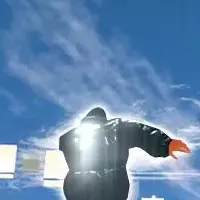
BioMarin Takes Legal Action Against Ascendis Pharma Over Patent Rights in Europe
BioMarin Pharmaceutical Inc., a prominent player in the biotechnology sector, has taken a decisive step by filing legal action against Ascendis Pharma A/S in the European Unified Patent Court based in Munich, Germany. This legal dispute centers on the alleged infringement of BioMarin's European patent EP 3 175 863 B1, which pertains specifically to long-acting variants of the C-Type Natriuretic Peptide (CNP).
The lawsuit signifies a major move for BioMarin, asserting its intellectual property rights over innovative developments in biotechnology, particularly those aimed at addressing rare genetic conditions. According to the company, their patent has been validated by the European Patent Office's Opposition Division as of 2024, underpinning their claim that Ascendis’ investigational product, TransCon CNP, violates their intellectual property rights.
As BioMarin and Ascendis prepare for potentially extended litigation, observers in the industry are noting that outcomes could take between 12 to 15 months. The case could have far-reaching implications for both companies, impacting their research and development efforts across Europe and beyond, particularly in how biotechnology companies secure their innovations.
Alexander Hardy, the president and CEO of BioMarin, emphasized the critical role of intellectual property in the biotechnology industry. He noted, “Intellectual property provides the foundation on which advances in the biotechnology industry are built, particularly for rare genetic conditions.” This incident stresses the importance of patents in fostering innovation and protecting valuable research that benefits patients worldwide.
The Unified Patent Court (UPC), which started its operations in June 2023, has jurisdiction over European patents for 18 member states that have ratified the Unitary Patents (UPs). This expands the scope of legal frameworks in which companies like BioMarin operate, complicating and enhancing the regulatory environment for patent enforcement.
Founded in 1997, BioMarin is dedicated to making significant advancements in the medical treatment of rare diseases through innovative medication and research. Their extensive portfolio includes eight commercially available therapies and a promising pipeline of clinical studies aimed at addressing genetic conditions that have historically lacked effective treatments. With a commitment to scientific integrity and patient focus, BioMarin strives to translate genetic discoveries into real-world solutions. This legal action against Ascendis is a part of ensuring that the hard-fought innovations are protected and remain accessible to the patients who need them.
Given the significant investment in research and development made by BioMarin over the years, CEO Alexander Hardy noted that they are driven to defend their scientific breakthroughs. He mentioned, “We are committed to protecting the important inventions our scientists make for patients around the world.” This case invites stakeholders to consider the complex intersection of intellectual property, ethics, and the necessity for pharmaceutical companies to protect what they innovate in a competitive landscape.
As this situation progresses, analysts will closely observe its impact not only on the two companies involved but on the larger biotechnology industry, underscoring the necessity of a robust patent system that bolsters patient access to innovative therapies while incentivizing further research and development.
In conclusion, BioMarin's legal initiative against Ascendis Pharma highlights ongoing tensions within the biotechnology sector over patent rights and competitive innovation. As this case unfolds in the UPC, it could set critical precedents for how intellectual property is managed and enforced in Europe, affecting countless stakeholders across the pharmaceutical landscape. It remains to be seen how this pivotal legal battle will shape the future of biotechnology patents and their implications for patients awaiting new treatments.
The lawsuit signifies a major move for BioMarin, asserting its intellectual property rights over innovative developments in biotechnology, particularly those aimed at addressing rare genetic conditions. According to the company, their patent has been validated by the European Patent Office's Opposition Division as of 2024, underpinning their claim that Ascendis’ investigational product, TransCon CNP, violates their intellectual property rights.
As BioMarin and Ascendis prepare for potentially extended litigation, observers in the industry are noting that outcomes could take between 12 to 15 months. The case could have far-reaching implications for both companies, impacting their research and development efforts across Europe and beyond, particularly in how biotechnology companies secure their innovations.
Alexander Hardy, the president and CEO of BioMarin, emphasized the critical role of intellectual property in the biotechnology industry. He noted, “Intellectual property provides the foundation on which advances in the biotechnology industry are built, particularly for rare genetic conditions.” This incident stresses the importance of patents in fostering innovation and protecting valuable research that benefits patients worldwide.
The Unified Patent Court (UPC), which started its operations in June 2023, has jurisdiction over European patents for 18 member states that have ratified the Unitary Patents (UPs). This expands the scope of legal frameworks in which companies like BioMarin operate, complicating and enhancing the regulatory environment for patent enforcement.
Founded in 1997, BioMarin is dedicated to making significant advancements in the medical treatment of rare diseases through innovative medication and research. Their extensive portfolio includes eight commercially available therapies and a promising pipeline of clinical studies aimed at addressing genetic conditions that have historically lacked effective treatments. With a commitment to scientific integrity and patient focus, BioMarin strives to translate genetic discoveries into real-world solutions. This legal action against Ascendis is a part of ensuring that the hard-fought innovations are protected and remain accessible to the patients who need them.
Given the significant investment in research and development made by BioMarin over the years, CEO Alexander Hardy noted that they are driven to defend their scientific breakthroughs. He mentioned, “We are committed to protecting the important inventions our scientists make for patients around the world.” This case invites stakeholders to consider the complex intersection of intellectual property, ethics, and the necessity for pharmaceutical companies to protect what they innovate in a competitive landscape.
As this situation progresses, analysts will closely observe its impact not only on the two companies involved but on the larger biotechnology industry, underscoring the necessity of a robust patent system that bolsters patient access to innovative therapies while incentivizing further research and development.
In conclusion, BioMarin's legal initiative against Ascendis Pharma highlights ongoing tensions within the biotechnology sector over patent rights and competitive innovation. As this case unfolds in the UPC, it could set critical precedents for how intellectual property is managed and enforced in Europe, affecting countless stakeholders across the pharmaceutical landscape. It remains to be seen how this pivotal legal battle will shape the future of biotechnology patents and their implications for patients awaiting new treatments.
Topics Other)










【About Using Articles】
You can freely use the title and article content by linking to the page where the article is posted.
※ Images cannot be used.
【About Links】
Links are free to use.